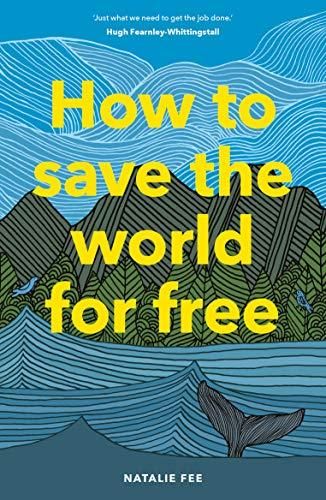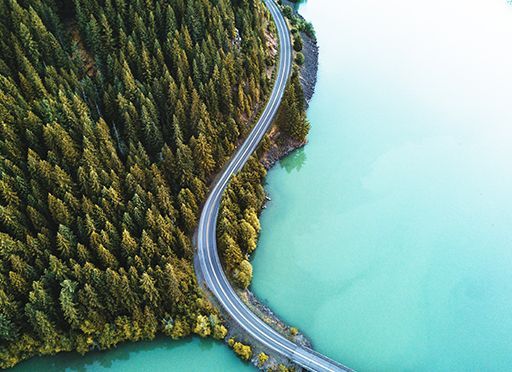Environmental activist Natalie Fee offers numerous easy-to-use tips you can follow to help sustain the environment, and she calls on you to take action.

Use Less Stuff
Environmentalist Natalie Fee – founder of City to Sea, a UK nonprofit seeking to stop plastic pollution – argues that corporations advertise to make you feel bad about yourself, so you’ll buy more stuff, and it’s time to stop buying and be happy anyway. In her short, smart treatise, she suggests myriad ways you can protect the planet.
Plastic
Fee begins by pointing out that since 1965, people have produced more than eight million tons of plastic. The material in straws, plastic lids and coffee cups breaks down into microplastic particles that last forever and, Fee laments, appear in the ocean, seafood and even salt. She tells you to avoid single-use plastics, filter your tap water, bring your own cup when you buy coffee and use paper straws.
Fee’s concise facts speak volumes. For example, she teaches that agriculture sucks up 70% of the Earth’s fresh water while individual and home use account for 10%. A single steak, she writes, uses 50 bathtubs of water, and cows emit methane, which is 23 times more heat-trapping than carbon dioxide.
The production of beef is around 10 times more damaging to the environment than any other form of livestock.Natalie Fee
As she does throughout the book, Fee offers easy, practical, Earth-friendly recommendations: Buy food without packaging, shop locally, compost your leftovers, grow vegetables, and cook at home in bulk and freeze your meals. And, she advises, join a Community-Supported Agriculture (CSA) group to buy local food and support local farmers.
Travel Tips
Fee suggests bicycling, carpooling or car sharing instead of driving alone. She warns that even though electric cars reduce emissions, the production of their batteries and electricity causes pollution. She provides surprising information about flying; she reports the little-known fact that jet fuel suffers no international tax, making it, she asserts, the only tax-protected fossil fuel. She urges you to donate to a conservation group every time you fly.
A recent study showed that a switch to public transport could reduce emissions by half by 2050 and save 1.4 million premature deaths worldwide every year.Natalie Fee
Reflecting an earnestness that at times seems slightly divorced from reality, she writes that the most environmentally sound travel is by bus. Readers may wonder if Fee has ever suffered through a long journey by bus.
Keep the Money at Home
When you spend locally, Fee asserts, most of the money stays in the community. When you buy from big retail chains, most of the money leaves.
Quite simply, buying secondhand furniture instead of new Chinese furniture would save you money while keeping more of the Congo Basin’s rainforests intact.Natalie Fee
Fee espouses finding an ethical bank, so you can stop supporting sectors that harm the environment. She warns that many top banks invest in arms manufacture, cattle farming, fossil fuel extraction and chemical production. And, she says, the sky-high salaries of Wall Street bankers and CEOs contribute to income inequality.
Conserve Water
If all the water in the world fit into a gallon container, Fee teaches, only one tablespoon would be fresh. Since two-thirds of all fresh water is ice, that leaves about a teaspoon. Fee warns that by 2050, fresh water demand will rise 55%, and most of that demand will come from industry. She explains that some 780 million people currently lack access to fresh water and that power plants use 50% of the fresh water in Western countries.
Fee suggests reducing your shower time and never buying antibacterial hand-pump soap, which contains microplastics and, possibly, Triclosan, an endocrine disruptor. She offers these water-saving tips: Redirect rainwater runoff to your garden or water your garden with bathwater; use natural cleaners such as vinegar, baking soda and lemon to minimize chemicals in the soil; run the dishwasher only when it is full; use half the recommended detergent; wash your clothes in cool water; and turn off your Wi-Fi at night to reduce electromagnetic radiation, which harms bees.
The single biggest action you can take to save the world is to have fewer kids. Natalie Fee
Fee endorses the United Kingdom’s GoodGym program, which encourages civic-minded people to get together, run to a community project, lend a hand and jog home. Play games, Fee counsels, indoors or out, make music, dance, read books and escape all your screens one day a week.
Biosphere
Fee explains how primates spread seeds around the rainforest and thus keep it growing, generating oxygen and sequestering carbon. Bats pollinate fruit and eat insects. Ants oxygenate the soil. Bees pollinate 70 out of the 100 crops that feed the world. Yet, Fee recognizes, governments allow destruction of the biosphere, leading to mass extinctions.
According to the WWF (World Wildlife Fund), global populations of fish, birds, mammals, amphibians and reptiles declined by 58% between 1970 and 2012.Natalie Fee
Fee recommends “rewilding” natural areas to restore their ecological balance. She recounts how America’s Yellowstone National Park, for example, reintroduced wolves, which ate elk, which allowed certain plants to revive, which slowed the pace of streams, which attracted beavers, who built dams – and the positive effects continue.
Advice, Not Propaganda
A passionate environmentalist, Natalie Fee wastes no words trying to convince climate change deniers. Her political position and the inspiration for her manual are identical: Ordinary people can save the world. Fee writes in short, clear sentences that add up to a concise, clear set of directions. She doesn’t so much advise as exhort. She calls on you to take even the smallest action or, ideally, combine numerous small actions and encourage others to do the same. Her lack of vanity, self-aggrandizement or pretension make her call to action all the more credible. She does at times fall into the trap of writing for the middle and upper class, and suggests tactics that urban dwellers and blue-collar workers might have trouble embracing.
If you are a climate change denier or favor profits over environmentally sound policies, this is not the book for you. Fee is not seeking converts. She is mobilizing those who care but have yet to take action.
Natalie Fee also wrote The Everyday Alchemist’s Happiness Handbook. Other fervent, populist calls to action against climate change include Green Town USA by Thomas J. Fox; The Road to Sustainability by E. Tiezzi; and No One Is Too Small to Make a Difference and Our House Is on Fire by Greta Thunberg.






